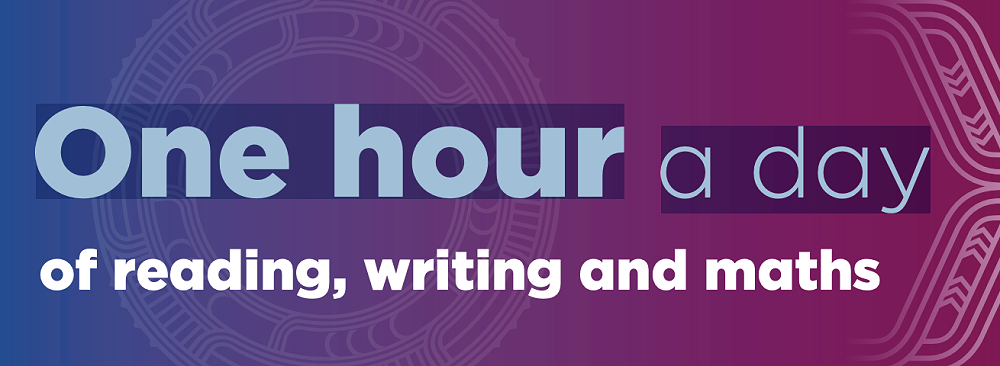
One Hour a Day - Reading, Writing & Maths
Starting from Term 1 2024, children in Years 0–8 will be taught reading, writing, and maths for an average of one hour a day in each skill. Daily teaching, along with a quality curriculum and good teaching practices, has been shown to improve children’s progress and achievement.
What does this change mean for my child?
Many schools already spend an hour a day on reading, writing, and maths, so this will not be a big change. The new ‘one hour a day’ requirement has been designed to be practical and flexible. Schools will still be able to hold events like athletics days and school camps since the requirement is for an average amount of time each week.
What will the lessons look like?
The National Curriculum outlines what your child should be able to understand, know, and do as they progress through their school years. Teachers will continue to use the curriculum and teach in ways that best suit the learning. This includes using things like active learning opportunities, group work, investigations, practice, and consolidation activities. The ‘one hour a day’ requirement can be broken up into small blocks throughout the day. Your child’s teacher will manage these to fit the needs of your child.
One hour a day How you can help at home
To support the learning they do at school, you can help your child develop reading, writing, and maths skills by:
- reading to your child and talking about books and stories
- encouraging your child to share what they think about a book (or video game, podcast, or movie), and being positive about the material they are reading, listening, or watching
- letting your child see you enjoy books, audiobooks, podcasts, games, movies, or videos in your first language
- encouraging your child to write, and talking with your child about what they are writing
- showing your child that you write for lots of reasons too, such as replying to an email, filling out a form, or writing an invitation or letter
- involving your child in activities where you use maths (for example playing games with cards or dice, grocery shopping, cooking, and DIY activities)
- encouraging your child to share how they solve mathematics problems (they may use different mental or written strategies to the ones you were taught)
- being positive about your child’s reading, writing, and maths experiences, and praising their efforts.
Working with your school
It can be helpful to share your child’s
interests, languages spoken at home, and
cultural practices with their teachers, so
they can be included in your child’s learning.
You can also talk with your child or their
teacher about their progress in reading,
writing, and maths and discuss with their
teacher ways you can support your child
at home.
